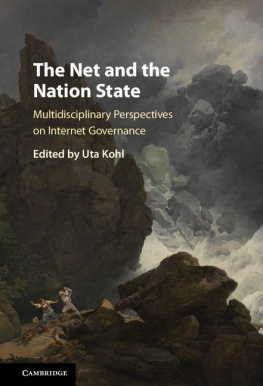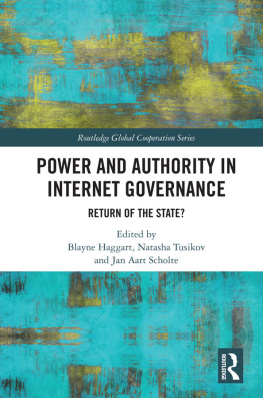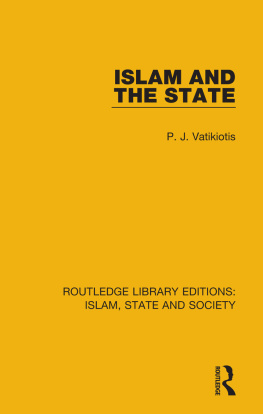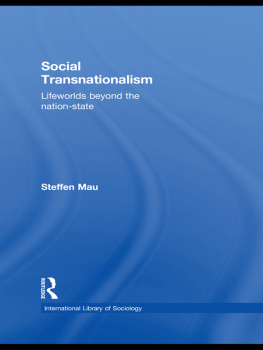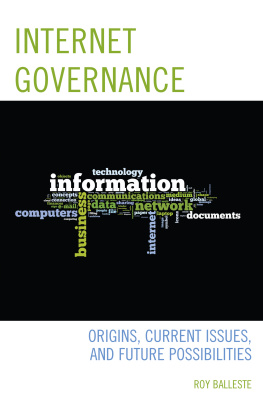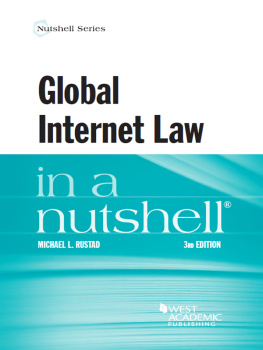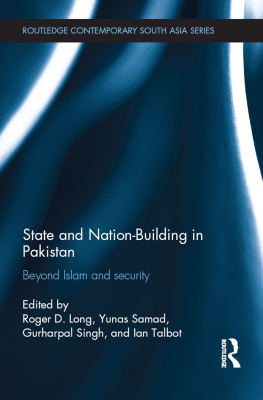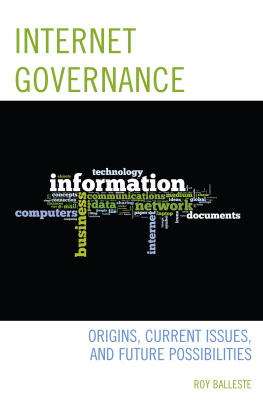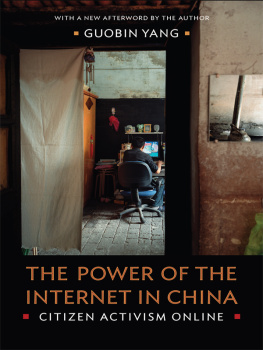This collection investigates the sharpening conflict between the nation state and the internet through a multidisciplinary lens. It challenges the idea of an inherently global internet by examining its increasing territorial fragmentation and, conversely, the notion that for states online law and order is business as usual. Cyberborders based on national law are not just erected around Chinas online community. Cultural, political and economic forces, as reflected in national or regional norms, have also incentivised virtual borders in the West. The nation state is asserting itself. Yet, there are also signs of the receding role of the state in favour of online corporations wielding influence through de facto control over content and technology. The collection contributes to the online governance debate by joining ideas from law, politics and human geography to explore internet jurisdiction and its overlap with topics such as freedom of expression, free trade, democracy, identity and cartographic maps.
Uta Kohl is a senior lecturer in the Department of Law and Criminology at Aberystwyth University. She has written extensively on numerous aspects of internet governance, including the monograph Jurisdiction and the Internet: Regulatory Competence over Online Activity (Cambridge University Press, 2007). She is also a co-author of Information Technology Law (2016), now in its fifth edition, and the co-opted Human Rights Trustee on the board of trustees of the Internet Watch Foundation.
University Printing House, Cambridge CB2 8BS, United Kingdom
One Liberty Plaza, 20th Floor, New York, NY 10006, USA
477 Williamstown Road, Port Melbourne, VIC 3207, Australia
4843/24, 2nd Floor, Ansari Road, Daryaganj, Delhi 110002, India
79 Anson Road, #06-04/06, Singapore 079906
Cambridge University Press is part of the University of Cambridge.
It furthers the Universitys mission by disseminating knowledge in the pursuit of education, learning, and research at the highest international levels of excellence.
www.cambridge.org
Information on this title: www.cambridge.org/9781107142947
10.1017/9781316534168
Cambridge University Press 2017
This publication is in copyright. Subject to statutory exception and to the provisions of relevant collective licensing agreements, no reproduction of any part may take place without the written permission of Cambridge University Press.
First published 2017
A catalogue record for this publication is available from the British Library.
Library of Congress Cataloging-in-Publication Data
Names: Kohl, Uta, editor.
Title: The net and the nation state : multidisciplinary perspectives on Internet governance / [compiled by] Uta Kohl, Aberystwyth University.
Description: Cambridge, United Kingdom ; New York, NY, USA : Cambridge University Press, 2017. | Includes bibliographical references and index.
Identifiers: LCCN 2016042158 | ISBN 9781107142947 (hardback : alk. paper)
Subjects: LCSH: Telecommunication policy. | Internet governance. | Freedom of information.
Classification: LCC HE7645 .N46 2017 | DDC 303.48/33--dc23 LC record available at https://lccn.loc.gov/2016042158
ISBN 978-1-107-14294-7 Hardback
Cambridge University Press has no responsibility for the persistence or accuracy of URLs for external or third-party Internet Web sites referred to in this publication and does not guarantee that any content on such Web sites is, or will remain, accurate or appropriate.
Contents
Uta Kohl and Carrie Fox
Interview with Guy Berger
Jan Oster
Melissa Aronczyk and Stanislav Budnitsky
Lulu Wei
Christine Hurt
Uta Kohl and Diane Rowland
Dan Jerker B. Svantesson
Graham Smith
Barney Warf
Jan Aart Scholte
Cedric Ryngaert and Mark Zoetekouw
Philippe Sgur
Georg Glasze
Figures
Tables
Notes on Contributors
Melissa Aronczyk is Associate Professor in the Department of Journalism and Media Studies at Rutgers University. She is the author of Branding the Nation: The Global Business of National Identity (2013) and the co-editor of Blowing Up the Brand: Critical Perspectives on Promotional Culture (2010).
Guy Berger is Director for Freedom of Expression and Media Development at UNESCO, where his work has included engagement with the global internet governance debate and overseeing a number of internet studies published by the Organization. He is former head of the School of Journalism and Media Studies, Rhodes University, South Africa. Berger is the author of the South Africa country report for the sixty-nation study by the Open Society Institute, titled Mapping Digital Media Journalism, Democracy and Values, and has also published two books on ICT policy issues in African countries, as well as various articles on digital developments impacting the media. He has a PhD from Rhodes University.
Stanislav Budnitsky is a PhD Candidate in Communication at Carleton University. His research interests include global communication and contemporary nationalism as they are manifested in internet governance, nation branding, and international relations with particular attention to Russia, Central and Eastern Europe and post-Soviet space. Budnitsky has contributed to the USC Center for Public Diplomacy on Russian politics and media. Before doctoral studies, he worked as a writer and producer with major international and Russian media outlets.
Carrie Fox is a doctoral researcher at Aberystwyth University. Her research interests include the emergence of new states and the role of the state in creating international law.
Georg Glasze holds the chair of Cultural Geography at the Friedrich-Alexander University Erlangen-Nrnberg. His research focuses on newer approaches in social, cultural and political geography emphasizing the constitutedness of geographies and analysing how it is that specific spaces are (re)produced that is to say, delimited, institutionalised and technically and materially established. The aim is to uncover how specific social structures thereby become reproduced and how the constitution of spaces is consequently an element of specific relations of power. After a PhD in urban social geography on the global spreading and regional contextualisation of so-called gated communities with fieldwork in Lebanon and the United States, Georg has written a habilitation thesis in political geography on the discursive constitution of a world-spanning geocultural space Francophonia with fieldwork in France and Burkina Faso, as well as a postdoc fellowship at the Maison des Sciences de lHomme in Paris, in 2009. Currently he is working on the fundamental shift that digitization and the geoweb brings to cartographic (re)presentations and the wider field of geoinformation. He is a co-founder of the Erlangen Centre for Digital Humanities and Social Sciences. In 2014 he was Academic Visitor to the Oxford Internet Institute.
Christine Hurt is the Rex J. & Maureen E. Rawlinson Professor of Law at the J. Reuben Clark Law School, Brigham Young University (BYU). Prior to joining the Faculty at BYU in 2014, Christine was Professor of Law and Director of the Business Law and Policy Program at the University of Illinois College of Law. She teaches in the areas of business organizations, securities regulation, entity taxation, corporate finance and torts, and her published research has focused on initial public offerings, fiduciary duties, securities regulation, gambling and business ethics. Prior to joining the Illinois law faculty, Christine taught law at the Marquette University Law School, University of Houston Law Center and Texas Tech University School of Law. After graduating from the University of Texas School of Law, she practiced in Houston, Texas, at Baker Botts LLP and Skadden, Arps, Slate, Meager and Flom, LLP.

